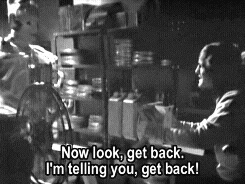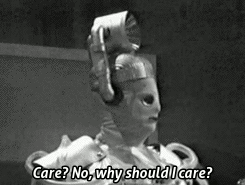Finally happy with my introduction.
NAFTALI IS A JERK
PART 1: MON PRECIEUX
0
It wasn’t quite a minyan – they had already left. They didn’t want shul; they wanted their electric fires that had been timed to come on at 10 in the morning. Some had stayed to talk, most had left, and now even those who’d remained were conveying out the door and muttering about the weather, the sermon or the hard seats. Standing forefront, by the bimah, was a short young man wearing a frown and looking down at an open book. Brown peyos were pinned back by a pair of rimless glasses, but the rest of his hair fell over his face before being very delicately tucked behind his ears. The grimace only grew worse in his silent reading.
Closer to the door two people stood talking in English, every word unheard by the young man at the lectern. They were chatting like old friends, and an untrained eye would perceive a lifetime of communication where a trained one would see the young woman’s gaze switch anxiously every so often to the man at the bimah, her hands tensing and easing at her sides.
Apart from their chatter and a muffled hum outside, the room was quiet; fragile fingers turned pages like a breeze; not as if the volume were too sacred to be touched, but too profane. The man at the lectern gasped.
Finally, his hand clutched around the book and dropped it without ceremony to the floor.
The Rabbi raised his head, said nothing, as he looked from the book to the man. Without pause he approached him while the young woman remained where she was, view trained on the door. A fierce set of light brown eyes gazed on Dathan as he advanced towards the bimah, ugly in their contempt.
The Rabbi halted barely a foot away.
‘After having been so good all morning,’ he said with a hint of happiness, ‘I knew I should have expected it. Come on. What’s wrong?’
‘It quotes forbidden literature.’
Dathan picked up the book and set it on a nearby chair. Naftali looked at the volume, then raised his faze suspiciously to the Rabbi,
‘Don’t leave that in the shul.’
‘I thought you couldn’t read English?’
‘Carmen is...needs me to write things in English. And I may have a new job. But tell me why it quotes from those books.’
‘Which books did you take exception to?
Naftali cried irritably and growled,
‘I do not need to explain this to you! Just because it has been Chanukah is no reason you can quote those books! It said… It even said the Christians use those books and you are going to read it in shul?’
‘I did not read it as scripture, Natti, I-’
‘You read it. You read it like Carmen reads her nonsense that I told her not to read.’
At this point, Carmen had buttoned her jacket and was about ready to approach her husband to leave the synagogue. She made it as close to Naftali as she could before he made her stop and come no closer without a word or glance, but a raised hand. The Rabbi paid her no mind.
‘And what did you do with the nonsense?’
‘I burned it.’
At this, Dathan turned to Carmen, who ignored his look and peered down at her feet with her fingers still wringing her skirt. The Rabbi turned again to her husband.
‘Did you tell her you did that?’
‘No.’
At these words the door opened and another young man came in, far more casual looking than the Rabbi with his top two shirt buttons and cufflinks undone. The scene before him did not stop him and before anyone could approach, he’d begun,
‘You haven’t seen Miriam today have you?’ He spoke to the Rabbi, but he looked at Naftali.
‘I know five. I saw three today.’
‘Oh I mean, you know who I mean. Was she at shul?’
‘No, but Lemuel was. Why?’
‘I suppose you really don’t know then.’
Naftali wasted no time in forgetting the book,
‘What is it? Tell me.’
‘I’m surprised your father didn’t tell you, Tali,’ the Rav smiled.
‘Lemuel tells me nothing.’ Naftali’s foot kicked aimlessly at the carpet at this, scowling.
Eliezer hesitated a while, choosing his words. Rocking back on his feet a few times, he managed to say,
‘She’s pregnant. She isn’t very well.’
Silence. No-one looked at anyone. The Rav twirled his curls and eventually the Rabbi spoke a dry, formal,
‘Mazel tov. We should be happy about that.’
Naftali echoed the first sentiment in a whisper, more to himself than anything.
‘She has been pregnant for the past month, apparently.’
‘And she told no-one?’
‘Well, for a woman who was told that she would never have any kids and took nearly six years to do it the first time, there’s some… You know, there’s some scepticism.’
Giving Naftali a clear side-eye, the Rabbi said,
‘There’s scepticism alright.’ Then faced Natti fully, ‘So how many books did you burn?’
Eliezer’s face crumpled into confusion.
‘Nine.’
‘Nine! You burned nine of her own books? And how many had she brought?’
‘Twelve. First I hid them but she took them back. I told her not to have them anymore, but she didn’t listen. So I destroyed them.’
‘Then you owe her nine new books.’
‘I will-’
‘And let her choose them.’
Naftali narrowed his eyebrows.
‘She could not choose a teabag.’
‘I don’t care if she couldn’t choose a damn thing. You buy her those books.’
At this the Rabbi turned away and began walking towards Eliezer, who was still standing in astonishment unable to interject.
‘I th-’
Naftali’s right foot hit the stone flooring with a hard thud.
‘I will not!’
‘Natti-’
He cut his wife off. Dathan paused, closed his eyes, but did not look back at Naftali as he sighed.
‘I know what’s best for her to read! I know what she should study! No-one here would just as long as she stays quiet. She can’t even read Hebrew without some transliteration and you think she should choose her own books? That is wrong! She is Jewish because she was born that and for no other reason. She is like someone who you ask for a siddur, and he brings you a plate with herbs. She is useless!’
The Rabbi turned around and at long last, Carmen spoke,
‘Rabbi...” hesitant for a moment, she briefly looked at her husband, ‘Rabbi, Nafi is right. You know he’ll buy them; I don’t worry about that. Perhaps you should look at his choices before he gives me them.’
‘Well,’ Dathan exhaled again and held up his hand somewhat, ‘I have no doubt that Naftali’s decision in this matter will be best for you, but what he did was wretched and you had every right to demand a recompense.’
Carmen nodded.
‘But she has some sense,’ Naftali barely hid a happy smirk.
‘In the meantime, you have just been told that your mother is going to have a baby. You could have been over with your parents now, wishing them well; instead, you’re here insulting your wife about her literature choices. I think it’s about time you left and saw them.’
‘You are right!’ Natti chirruped and clutched his wife’s arm, scampering out.



